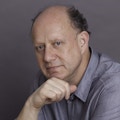Thomas Jessell, Ph.D.
Thomas Jessell’s website
Thomas Jessell’s work aimed to understand how nerve cells in the developing spinal cord and brain assemble into functional circuits that control motor actions. His studies focused on the identity and diversity of circuits that control two forms of limb motor behavior: locomotion and skilled reaching. He defined the cellular rules and molecular mechanisms that direct the intricate wiring of these motor circuits. He used insights into the molecular origins of neuronal subtype to devise precise genetic methods to monitor and manipulate the activity of selected classes of interneurons, permitting an insight into the design of systems and circuits involved in the planning and execution of movement. Ultimately, his research was intended to provide a more complete understanding of how the central nervous system is constructed and to find new ways to repair diseased or damaged neurons in the human brain and spinal cord.
Jessell received his Ph.D. in 1977 from the University of Cambridge with Leslie Iversen in the MRC Neurochemical Pharmacology Unit. He was a postdoctoral fellow in Gerald Fischbach’s laboratory at Harvard Medical School, and then a Locke Research Fellow of the Royal Society. From 1981 to 1985 he was on the faculty of the Department of Neurobiology at Harvard Medical School before moving to Columbia University. Jessell was the Claire Tow Professor in the Department of Neuroscience and the Department of Biochemistry and Molecular Biophysics. He was an investigator at the Howard Hughes Medical Institute and a co-director of Columbia’s Mortimer B. Zuckerman Mind Brain Behavior Institute and Kavli Institute for Brain Science. Jessell passed away in 2019.